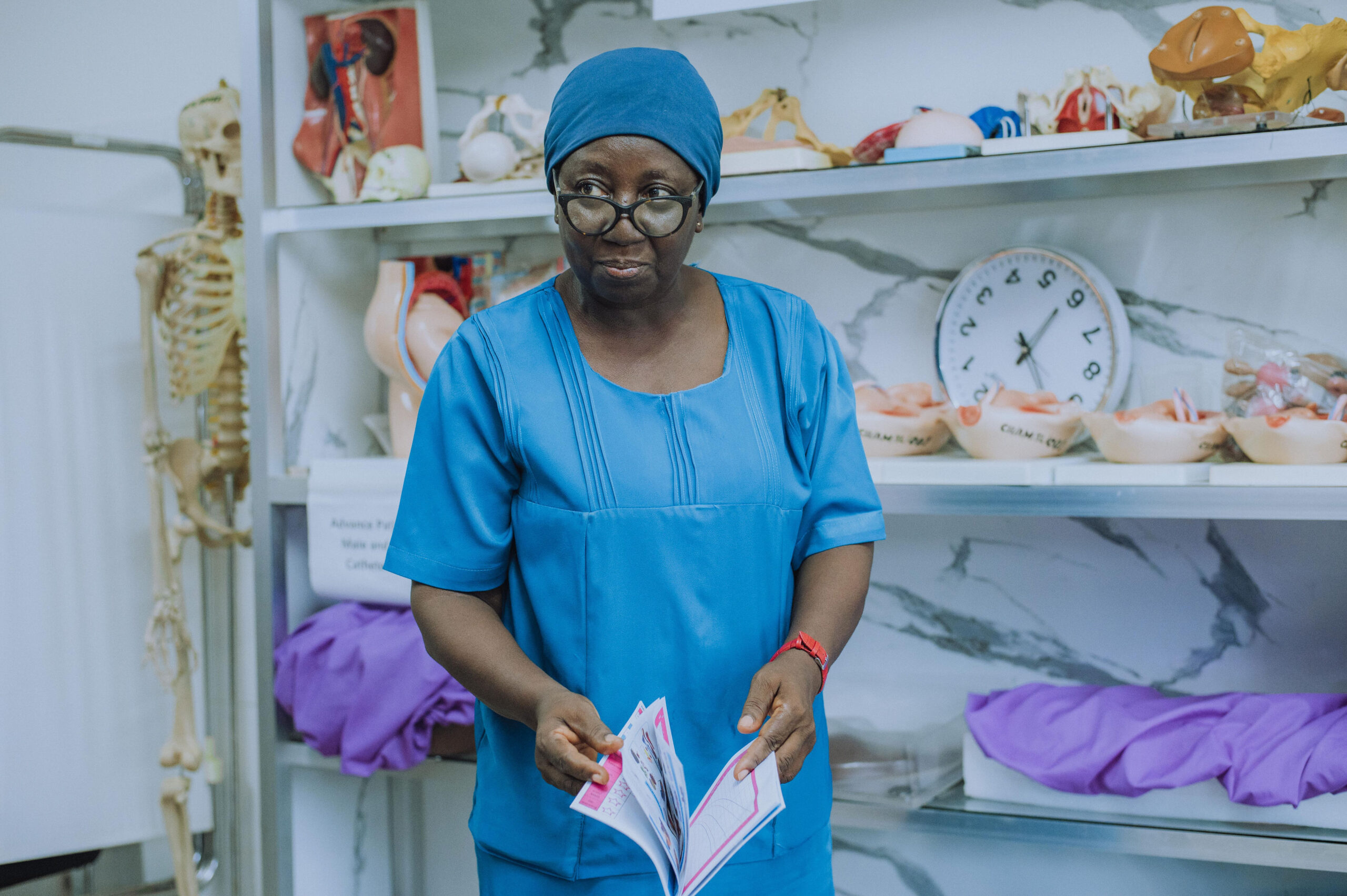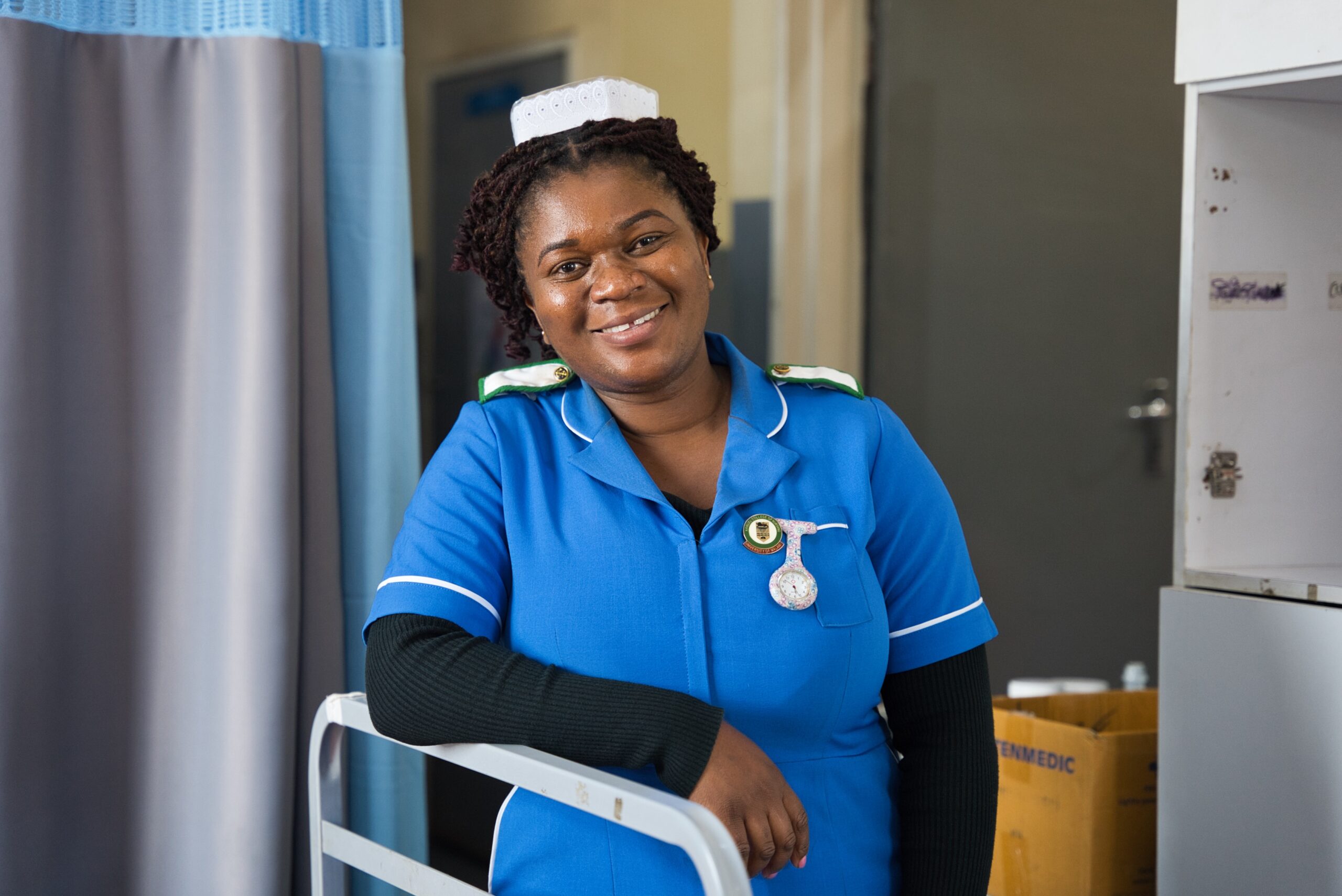Strengthening Primary Care Through Portable Ultrasounds in Zambia
Dr. Kunka (right) demonstrates to Dr. Makasa (left) how to do a specific ultrasound scan.
Medical imaging and ultrasounds are used globally on a daily basis. These tools improve the quality of care from obstetrics to emergency care and are valuable in the primary care context.
Despite its benefits, diagnostic ultrasound has not been broadly or equitably accessible around the world. Because of the specialized skills needed and large technical installations of imaging equipment, scans have traditionally required secondary clinicians, such as radiologists, sonographers, or subspecialists, to perform and interpret them. For resource-limited countries, especially those with critical shortages in human resources for health, these requirements have prevented millions of people from accessing essential diagnostic and screening services.
Fortunately, recent advances in ultrasound technology have resulted in devices that are small enough to fit in a clinician’s pocket and be held in a single hand, while still producing quality images. This has spurred a new movement in medical imaging innovation known as “Point-of-care ultrasound” (POCUS). The portability of this new technology has allowed ultrasound to be used in areas previously considered too remote, or having limited resources, to support their use. Beyond the technology, equipping frontline health workers with the clinical skills and expertise to leverage these tools could have far-reaching impacts on care quality and accessibility.
“On the wards and in clinical rounds, we see tremendous possibilities for this type of technology. We are already seeing the impact that just one pocket ultrasound can have in a facility,” said Dr. Bassim Birkland, Seed Global Health Country Representative and faculty at the University of Zambia. “With just this limited experience, it is exciting to envision the impact we might have, not only on individual patients, but in scaling up the family medicine discipline and adoption of POCUS across Zambia.”
Dr. Matthew Haldeman, a Seed Educator who has been instrumental in integrating POCUS training into the family medicine curriculum at the university since January, stated that the skills workshops have been universally received with great interest. “Every time we have scheduled supervised scanning opportunities—usually Tuesday mornings at Chilenje Hospital—Dr. Kunka [Family Medicine Registrar] is there early, having already selected a list of patients who would benefit from a diagnostic scan,” Dr. Haldeman said. “He is now skilled in POCUS and has assembled a large portfolio of diverse ultrasound images ranging from echocardiograms to liver scans.” His diagnostic images at the patients’ bedside have led to numerous lifesaving interventions.
In addition to clinical benefits, Dr. Haldeman also sees POCUS as a promising tool to strengthen clinical skills amongst future family medicine physicians in the country. “Now, if a patient needs a scan in the middle of teaching rounds, I can hand Dr. Kunka the ultrasound and he can scan the patient independently, while I continue to teach the group,” he said.
To pursue this further, Dr. Haldeman, Dr. Birkland, and others have launched a longitudinal study on the impacts of POCUS training within the family medicine program at the university. The goals of the study are to explore how training family medicine registrars in the use of these tools can expand patient access to medical imaging and demonstrate how skills learned lead to improvements in quality of care delivered.
“We can help train the program’s next ultrasound trainer,” said Dr. Haldeman. “As a permanent family medicine faculty, the trainer’s knowledge could be instrumental in teaching POCUS skills to dozens of future resident physicians—and potentially impact thousands of their future patients.”

